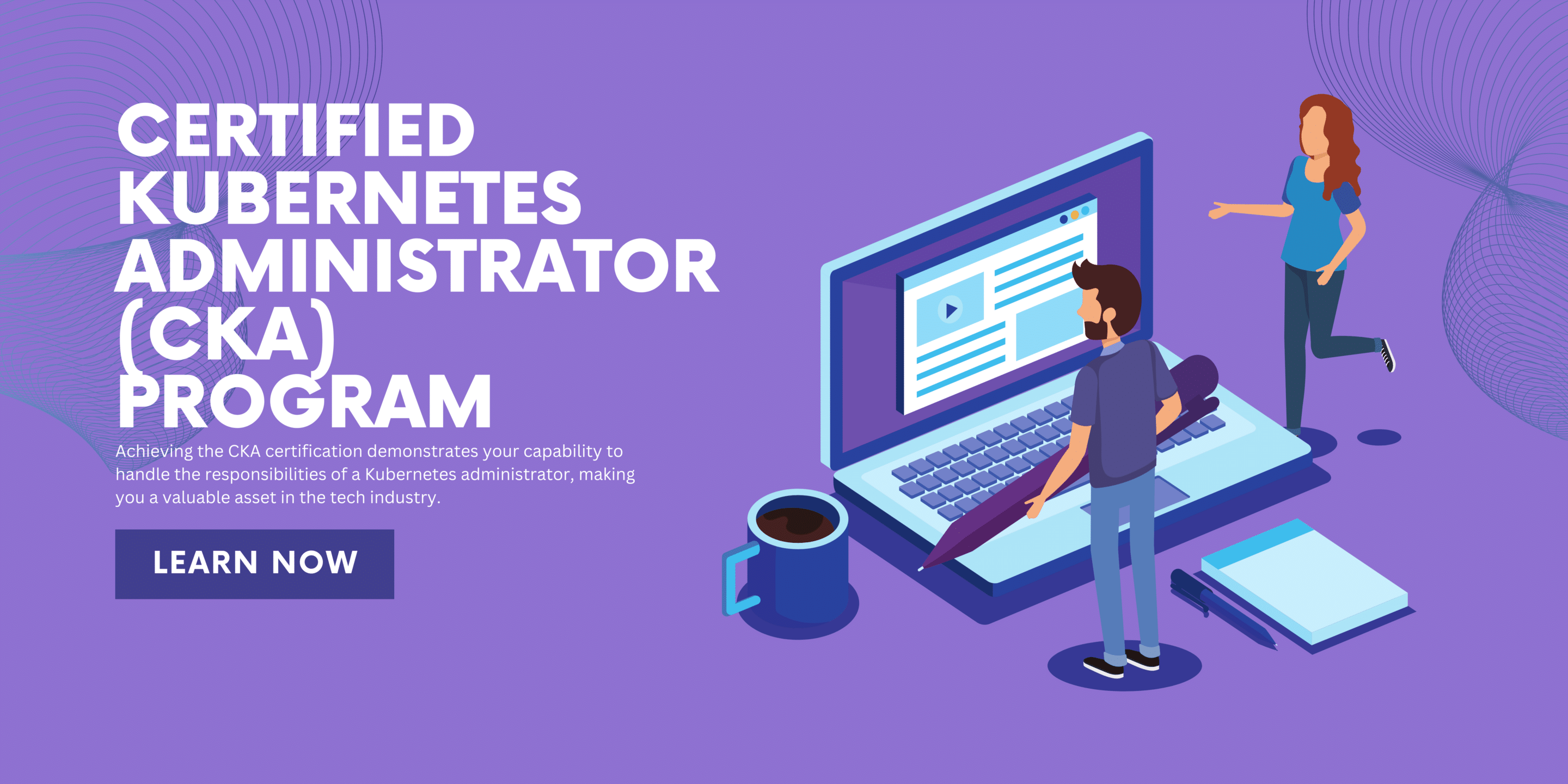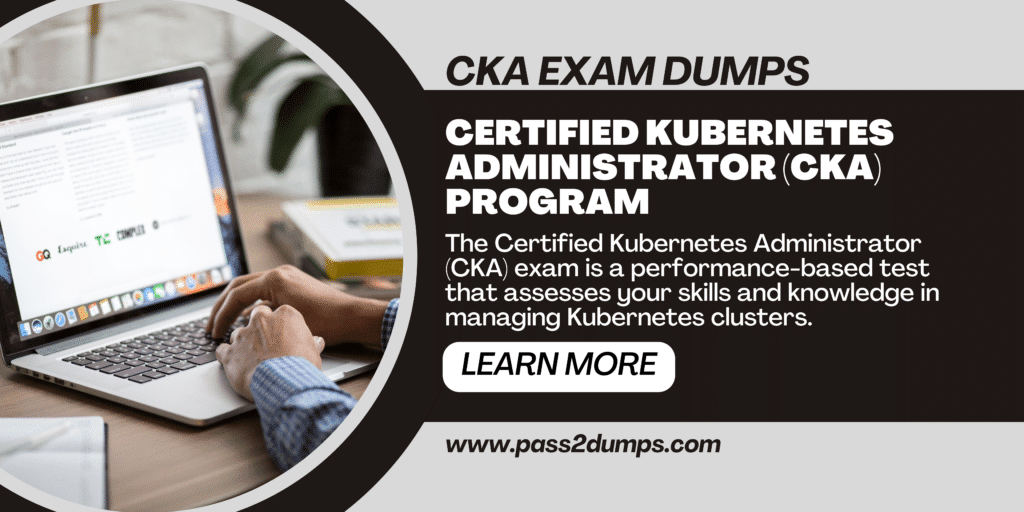Sharing My Journey of CKA Exam Preparation and Success
Preparing for the Certified Kubernetes Administrator (CKA) exam was a challenging yet rewarding journey. I dedicated several weeks to studying the exam topics thoroughly, familiarising myself with Kubernetes concepts, and practicing hands-on exercises. Setting a strict study schedule helped me stay on track and cover all the necessary material before the exam date.
One of the most valuable CKA exam tips I received was to focus on practical experience rather than just theory. This advice proved to be incredibly helpful, as the exam questions were mainly scenario-based and required a deep understanding of Kubernetes operations. By regularly practicing with real-world scenarios and completing practice questions, I was able to build confidence in my abilities and improve my problem-solving skills.
On the day of the exam, I felt well-prepared and confident in my knowledge. The exam questions were challenging, but thanks to my thorough CKA exam preparation, I was able to answer them accurately and efficiently. When I received my exam results and saw that I had passed, I felt a great sense of accomplishment and pride in my hard work paying off. Sharing my journey of CKA exam preparation and success has inspired others to pursue their certification goals and approach their studies with dedication and determination.
Top Strategies To Ace Your CKA Exam on The First Attempt
Preparing for the Certified Kubernetes Administrator (CKA) exam requires careful planning and effective study strategies to increase the chances of success on the first attempt. One of the most crucial CKA exam tips is to create a structured CKA exam schedule that allows for dedicated study time each day.
By allocating specific periods for reviewing Kubernetes concepts, practicing hands-on exercises, and completing practice questions, candidates can cover all the necessary material thoroughly. Another key strategy for acing the CKA exam is to focus on understanding CKA exam questions rather than memorizing answers. The exam primarily consists of scenario-based questions that test practical knowledge and problem-solving skills.
Therefore, practicing with real-world scenarios and completing mock exams can help build confidence and familiarity with the exam format. Additionally, simulating exam conditions during practice sessions, such as time constraints and no external resources, can better prepare candidates for the actual test environment. By following these top strategies and maintaining a disciplined approach to CKA exam preparation, individuals can enhance their chances of passing the CKA exam on the first try and earning valuable certification.
Essential Resources and Materials for Effective CKA Exam Preparation
Effective preparation for the Certified Kubernetes Administrator (CKA) exam requires access to essential resources and materials to enhance understanding and readiness for the test. One of the key CKA exam tips is to utilize reliable study guides and official documentation provided by Kubernetes. These resources offer in-depth explanations of core concepts, best practices, and guidelines for managing Kubernetes clusters, making them invaluable tools for exam preparation.
In addition to official documentation, candidates can benefit from online courses and tutorials specifically designed to cover CKA exam questions and topics comprehensively. Platforms like Udemy, Coursera, and Linux Academy offer courses tailored to the CKA exam syllabus, providing interactive learning experiences and hands-on practice exercises to reinforce knowledge and skills. Moreover, practicing with mock exams and sample questions is essential for familiarising oneself with the exam format and types of questions that may be encountered.
Websites like dumpsarena repositories offer a wide range of practice tests and exercises to test understanding and prepare for the challenging scenarios presented in the CKA exam. By utilizing these essential resources and materials in conjunction with a structured CKA exam schedule, candidates can enhance their preparation and increase their chances of success in achieving CKA certification.
How To Create a Study Schedule That Ensures CKA Exam Success?
Creating a well-structured study schedule is a fundamental aspect of ensuring success in the Certified Kubernetes Administrator (CKA) exam. One of the most valuable CKA exam tips is to allocate dedicated time each day for studying Kubernetes concepts, practicing hands-on exercises, and reviewing challenging CKA exam questions.
By establishing a consistent CKA exam schedule, candidates can effectively manage their time and cover all the necessary material before the exam date. To create a study schedule that maximizes productivity, individuals should consider their personal preferences and peak study times. Some may find it beneficial to study in shorter, focused sessions throughout the day, while others may prefer longer study periods during specific hours. Additionally, incorporating breaks and relaxation time into the schedule is crucial for maintaining focus and preventing burnout.
Furthermore, setting specific goals and milestones within the study schedule can help track progress and ensure that all exam objectives are covered adequately. By following a well-organized CKA exam preparation plan and adhering to the study schedule, candidates can boost their confidence, improve retention of key concepts, and increase their chances of success in the CKA exam.
Understanding the CKA Exam Format and Question Types
To excel in the Certified Kubernetes Administrator (CKA) exam, candidates must have a comprehensive understanding of the exam format and question types. One of the essential CKA exam tips is to familiarise oneself with the structure of the test, which typically consists of scenario-based questions that assess practical knowledge and problem-solving skills related to Kubernetes operations.
By gaining insight into the CKA exam questions, candidates can better prepare for the challenges presented during the exam. Moreover, understanding the distribution of marks across different topics within the CKA exam syllabus is crucial for prioritizing study efforts effectively. By identifying the weightage of each section, candidates can focus on areas that carry more significance and allocate study time accordingly in their CKA exam preparation schedule.
Additionally, practicing with sample questions and mock exams can provide valuable exposure to the types of questions that may be encountered in the CKA exam. This hands-on approach allows candidates to familiarise themselves with the question format, time constraints, and the level of complexity expected in the test. By comprehending the CKA exam format and question types, individuals can enhance their readiness and approach the exam with confidence and competence.
Practical Tips for Managing Time During the CKA Exam Tips
Effectively managing time during the Certified Kubernetes Administrator (CKA) exam is crucial for success. One of the key CKA exam tips is to carefully read all CKA exam questions and instructions before starting to ensure a clear understanding of what is being asked. By taking a few moments to digest the information provided, candidates can prioritise their efforts and allocate time efficiently to each question.
Another practical tip for managing time during the CKA exam is to tackle easier questions first. By answering straightforward questions initially, candidates can build momentum and gain confidence, which can be beneficial when approaching more challenging CKA exam questions later on. Additionally, setting a time limit for each question based on its complexity can help maintain a steady pace throughout the exam and prevent spending too much time on a single question.
Furthermore, if a particular question proves to be time-consuming or challenging, it may be beneficial to mark it for review and move on to other questions. This strategy allows candidates to maximize their time by ensuring that they address all questions within the allocated timeframe. By implementing these practical tips for managing time effectively during the CKA exam, candidates can enhance their performance and increase their chances of success.
Common Pitfalls to Avoid while Preparing for the CKA Exam
When preparing for the Certified Kubernetes Administrator (CKA) exam, it is essential to be aware of common pitfalls that can hinder success. One of the key CKA exam tips is to avoid procrastination in CKA exam preparation. Delaying study sessions or leaving revision to the last minute can lead to inadequate coverage of exam topics and increased stress levels. Establishing a structured cka exam schedule and adhering to it consistently can help prevent this pitfall.
Another pitfall to avoid is focusing solely on memorisation rather than understanding concepts. The CKA exam primarily tests practical knowledge and problem-solving skills, so rote learning may not suffice. Instead, engaging in hands-on exercises, practicing with real-world scenarios, and tackling sample CKA exam questions can enhance comprehension and readiness for the exam. Additionally, neglecting to simulate exam conditions during practice sessions can be detrimental.
Familiarising oneself with the time constraints and format of the CKA exam is crucial for managing time effectively during the actual test. By steering clear of these common pitfalls and following effective CKA exam preparation strategies, candidates can optimize their chances of success in the CKA exam.
The Importance of Hands-On Practice for the CKA Exam
In preparing for the Certified Kubernetes Administrator (CKA) exam, the significance of hands-on practice cannot be overstated. One of the essential CKA exam tips is to engage in practical exercises that simulate real-world scenarios to enhance understanding and proficiency in Kubernetes operations.
Hands-on practice allows candidates to apply theoretical knowledge to practical situations, reinforcing learning and problem-solving skills crucial for the exam. By immersing themselves in hands-on practice, individuals can familiarise themselves with the tools, commands, and processes commonly used in Kubernetes environments. This practical experience not only deepens comprehension of CKA exam questions but also builds confidence in navigating and managing Kubernetes clusters effectively during the exam.
Moreover, hands-on practice enables candidates to troubleshoot issues, optimise configurations, and implement best practices in a hands-on manner. This active learning approach not only solidifies knowledge but also cultivates the skills necessary to tackle the diverse challenges presented in the CKA exam. Therefore, integrating hands-on practice into CKA exam preparation is a vital strategy for enhancing readiness and success in achieving CKA certification.

